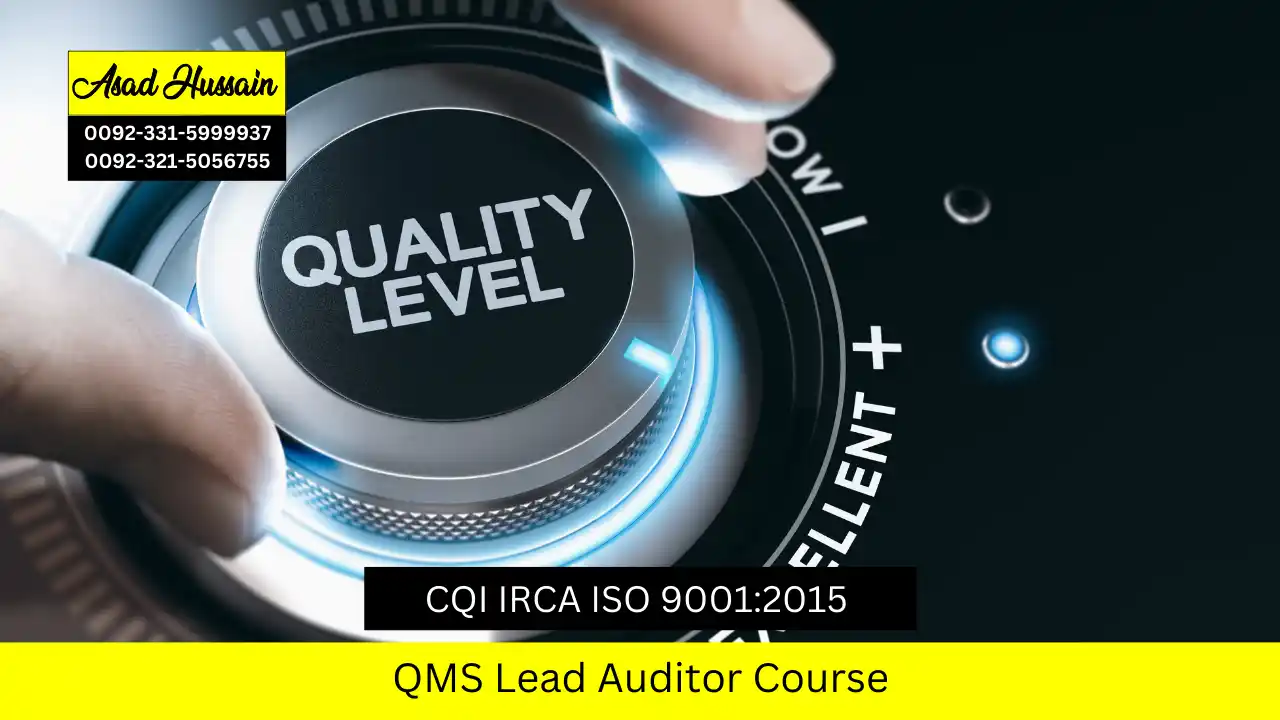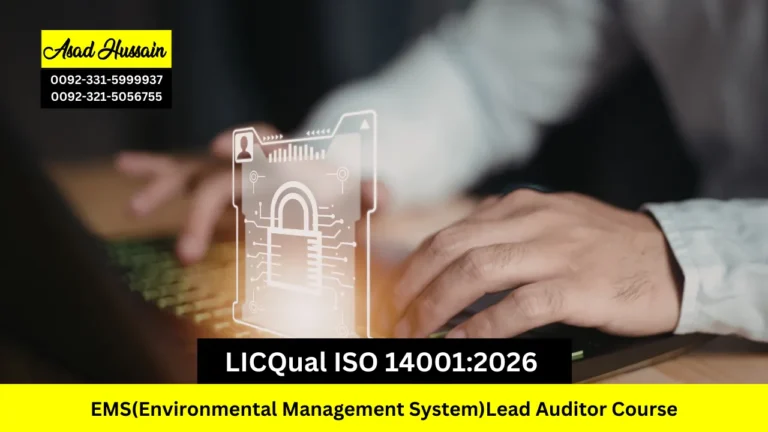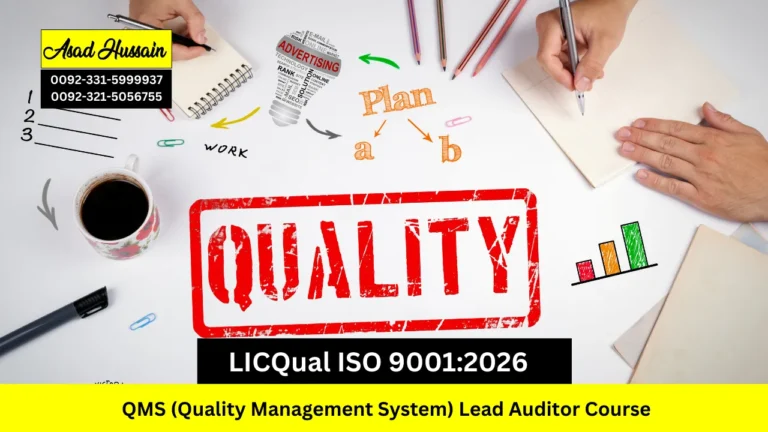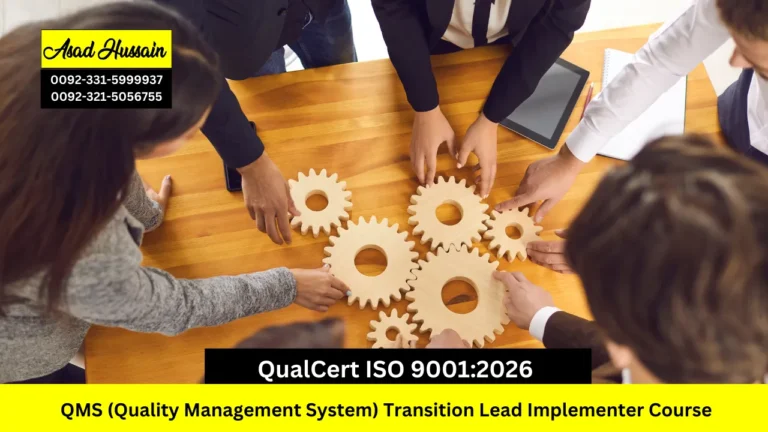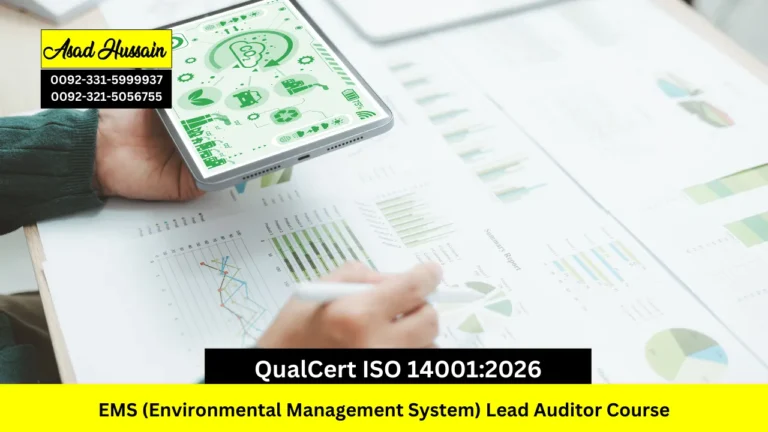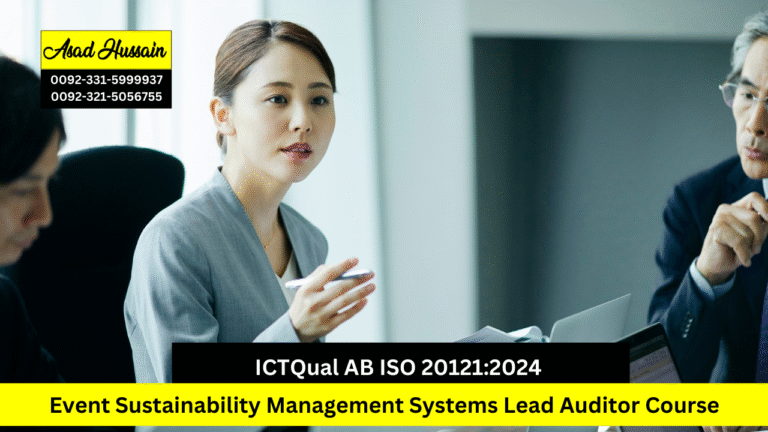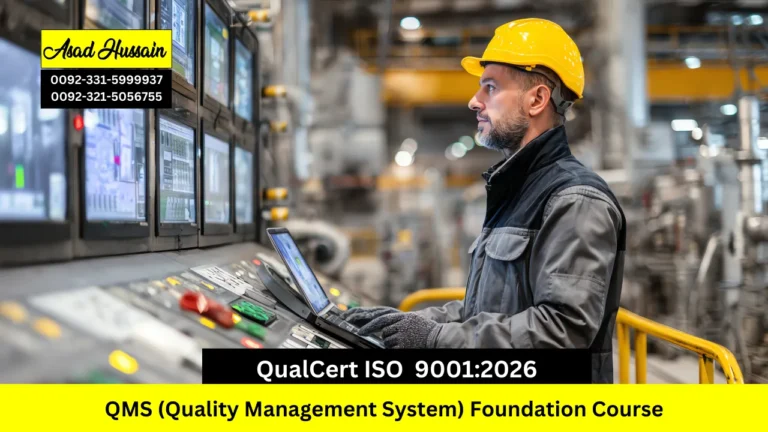Elevate your auditing expertise with the globally recognized CQI IRCA ISO 9001:2015 QMS Lead Auditor Course—your gateway to becoming a certified quality management system (QMS) lead auditor. Designed for professionals seeking to audit ISO 9001:2015 management systems effectively, this intensive course equips you with the skills, knowledge, and confidence to lead first-party, second-party, and third-party audits with authority and precision.
Through a dynamic blend of theoretical learning and practical simulation, this IRCA-accredited training focuses on the principles and practices of quality management and auditing, as outlined by ISO 19011 and ISO/IEC 17021. You’ll explore audit planning, conducting, reporting, and follow-up, while gaining a deep understanding of the ISO 9001:2015 standard and its real-world application across industries. The course also reinforces risk-based thinking and continual improvement strategies essential for modern organizations.
Led by experienced trainers, this five-day course includes interactive workshops, group exercises, and a final written examination to assess competency. You’ll learn how to evaluate process performance, identify nonconformities, and deliver value-adding audit findings. Whether you’re looking to audit internally, for a certification body, or as a freelance professional, this course is a critical step in your auditing journey.
Ideal for quality managers, consultants, and professionals involved in auditing or implementing QMS, this course meets the formal training requirements for individuals seeking IRCA certification as a Lead Auditor. Completion demonstrates not only technical competence but also your commitment to quality excellence and global compliance standards.
By enrolling in the CQI IRCA ISO 9001:2015 Lead Auditor Course, you position yourself at the forefront of quality assurance and compliance leadership. Gain international credibility, boost your career prospects, and make a measurable impact in your organization’s quality performance with this essential, globally trusted qualification.
Program Highlights
The CQI IRCA ISO 9001:2015 QMS Lead Auditor Course Consist of following core units.
Mandatory Units
- Introduction to Quality Management Systems (QMS) and ISO 9001:2015
- ISO 9001:2015 Requirements
- Fundamentals of Auditing and ISO 19011 Guidelines
- Audit Planning and Preparation
- Conducting the Audit – On-site Activities
- Audit Reporting and Follow-Up
- Leading an Audit Team
To enroll in the CQI IRCA ISO 9001:2015 QMS Lead Auditor Course, applicants are expected to meet the following entry requirements:
Minimum Age Requirement
Applicants must be at least 18 years of age at the time of enrollment.
Educational Qualifications
A minimum of a secondary school education (high school diploma or equivalent) is required. Candidates should have a solid general education to effectively comprehend technical content, contribute to discussions, and complete written assessments.
Professional Background
While not mandatory, it is recommended that candidates have at least one year of relevant work experience. Suitable professional backgrounds include:
- Quality assurance or quality control
- Internal or supplier auditing
- Process improvement or compliance roles
- Technical or operational positions in industries applying management systems
English Language Proficiency
As the course is delivered and assessed entirely in English, candidates must demonstrate adequate language skills in the following areas:
- Reading: Ability to understand ISO standards and audit-related documents
- Writing: Capability to complete written tasks and the final examination
- Speaking and Listening: Confidence in participating in group discussions, presentations, and audit simulations
These prerequisites ensure that participants are well-prepared to engage fully with the course content and successfully complete all assessments.
Study Unit 1: Introduction to Quality Management Systems (QMS) and ISO 9001:2015
- Understand the purpose, scope, and value of implementing a Quality Management System (QMS).
- Describe fundamental quality management principles, including the Plan-Do-Check-Act (PDCA) cycle.
- Gain insight into the structure, intent, and high-level framework of the ISO 9001:2015 standard.
- Recognize the importance of customer focus, leadership, and continual improvement in driving quality performance.
- Identify the influence of organizational context and the role of interested parties in shaping a QMS.
Study Unit 2: ISO 9001:2015 Requirements
- Interpret and explain the requirements outlined in ISO 9001:2015 Clauses 4 through 10.
- Understand how these requirements are applied within organizations to meet quality objectives.
- Evaluate the role of documented information in supporting conformity and effective QMS implementation.
- Examine how ISO 9001 promotes risk-based thinking and process-oriented management.
- Relate standard requirements to practical business and operational environments.
Study Unit 3: Fundamentals of Auditing and ISO 19011 Guidelines
- Explain the purpose, types, and core principles of auditing.
- Understand the structure and guidance provided in ISO 19011:2018 for auditing management systems.
- Identify key auditor responsibilities, including ethical conduct and the collection of audit evidence.
- Differentiate between internal (first-party), supplier (second-party), and certification (third-party) audits.
- Recognize the contribution of ISO/IEC 17021 in ensuring credible certification processes.
Study Unit 4: Audit Planning and Preparation
- Develop structured audit plans aligned with defined scope, objectives, and criteria.
- Conduct document reviews to evaluate QMS readiness ahead of an audit.
- Create effective audit checklists and assign appropriate responsibilities within the audit team.
- Plan audit resources, timelines, and communication strategies to support smooth execution.
- Identify and mitigate potential risks related to audit logistics and planning.
Study Unit 5: Conducting the Audit – On-site Activities
- Conduct opening meetings to establish audit context and build rapport with auditees.
- Apply effective communication and interview techniques during audit execution.
- Gather and verify objective evidence through observation, interviews, and document review.
- Accurately record audit findings using clear, structured, and factual language.
- Uphold professionalism and effectively manage challenging behavior during audit interactions.
Study Unit 6: Audit Reporting and Follow-Up
- Categorize audit findings into nonconformities, observations, and opportunities for improvement.
- Write precise, evidence-based nonconformity reports that clearly convey issues.
- Prepare complete and compliant audit reports that meet both organizational and standard requirements.
- Conduct closing meetings to communicate findings and next steps to stakeholders.
- Understand the process of corrective action review, follow-up audits, and verification activities.
Study Unit 7: Leading an Audit Team
- Define the key roles, responsibilities, and qualities of an effective lead auditor.
- Coordinate and guide audit team members in executing their assigned tasks.
- Facilitate team briefings and ensure consistent evaluation of evidence across the team.
- Manage interpersonal dynamics, resolve conflicts, and ensure efficient use of time and resources.
- Demonstrate leadership in complex audit scenarios, including multi-auditor and multi-site audits.
The CQI IRCA ISO 9001:2015 QMS Lead Auditor Course is specifically designed for professionals who aim to master the auditing of Quality Management Systems and achieve recognized accreditation as lead auditors. This course is ideal for:
- Quality Managers and Quality Assurance Professionals seeking to deepen their understanding of ISO 9001:2015 requirements and lead internal or external audits confidently.
- Auditors and Compliance Officers who want to enhance their auditing skills and gain IRCA certification to advance their careers.
- Consultants and Process Improvement Specialists who support organizations in implementing and maintaining effective QMS in line with international standards.
- Operations and Technical Managers responsible for ensuring quality and compliance in their departments or production processes.
- Supplier and Vendor Auditors engaged in second-party audits to evaluate and improve supply chain quality.
- Individuals aspiring to become certified lead auditors, whether working within certification bodies or as independent auditors.
This course suits anyone involved in quality management, auditing, or compliance who wants to develop robust auditing competencies, lead audit teams, and contribute significantly to organizational quality excellence and continual improvement.

